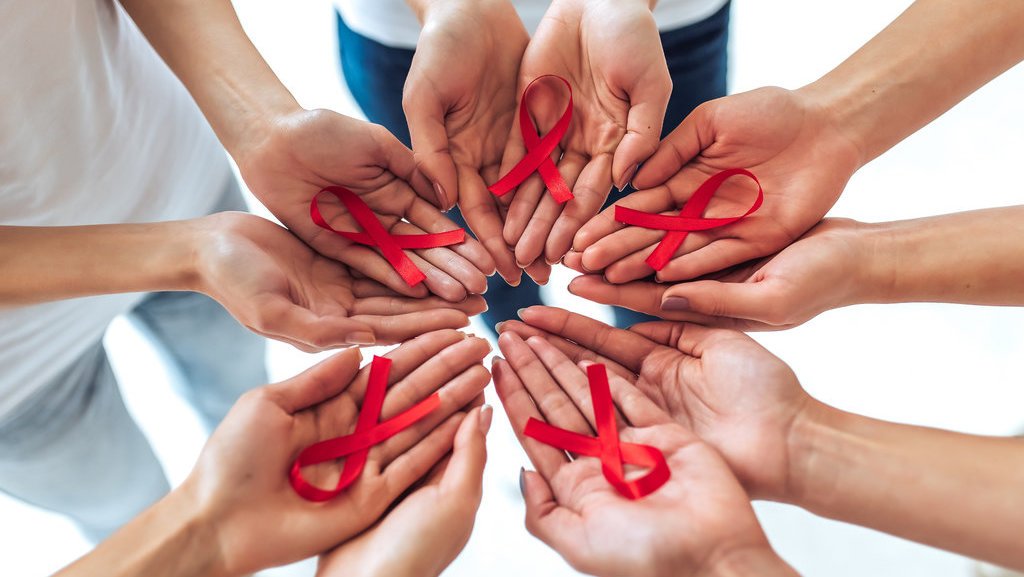Human Immunodeficiency Virus/Acquired Immunodeficiency Syndrome (HIV/AIDS) is a chronic disease that attacks the immunity of the human body (immunosuppression). The most dangerous conditions of patients with HIV/AIDS include weakened immune system. Over time, HIV attacks the body’s CD4 cells which play a critical role in maintaining a healthy immune system. Patients with HIV/AIDS not only have problems with their physical condition, but they also face social problems that are quite concerning as a result of the stigma against this disease . The community creates an embarrassing situation for the HIV/AIDS patients as they treat them as an outcast of the society, as they think they a are responsible for the transmission of HIV / AIDS. As a result the patients with HIV/AIDS are isolated and get discriminatory behavior from the community. The situation of patients with HIV/AIDS are very complex, apart from having to face their illness, they also have to face the stigma and disgrace of the community, causing feelings of anxiety and negative reactions. Consequently, they do not take the medication regularly, especially if they are outside their environment because of fear of being exposed about their HIV status.
The stigma felt by the patients with HIV/AIDS causes feelings of inadequacy, stress, depression, guilt and, anxiety due to which they fail to access health services. This fear was considered to be the cause of HIV transmission. Research conducted by Habibi and Supodo, (2020) on patients with HIV/AIDS in Kendari with a total of 48 respondents showed that there were 17 respondents (35.5%) patients with HIV/AIDS with a stigma of not adhering to ARV treatment and 31 respondents (64.5%) who adhered to ARV treatment. This study proved that patients with HIV/AIDS with a stigma were afraid to consume drugs in front of their friends or they were also afraid of being questioned about their illness in their work environment. The roles of nurses in health services include looking after the biological needs, coping strategies, and providing social support and spiritual support to patients with HIV/ AIDS which are very necessary during treatment. Nurses have an important role in stress management, especially in facilitating and directing constructive coping to accelerate the patient’s adaptive response to the disease.
Stigma is a significant barrier for patients with HIV/ AIDS to prevent and treat HIV / AIDS. Nurses as counselors and educators for patients with HIV/AIDS play important role in coping strategies of patients with HIV/AIDS, including facilitating sources of self-potential so that acceptance response occurs according to the stages of Kubler-Ros, cognitive problem-solving techniques, and behavioral techniques, namely teaching behaviors that support healing. Psychosocial adaptive response (self-acceptance) to stigma generates feelings and anxious reactions. Patients with HIV/ AIDS are expected to have constructive coping so that anxiety is reduced and will have an impact on positive social interactions with family, friends, and society. The reduced stigma in the community with HIV/AIDS patient will reduce the level of anxiety. This study aims to analyze the relationship between stigma and anxiety with adherence to treatment schedules for HIV/AIDS patients in Surabaya, Indonesia.
Stigma and anxiety are often felt by patient with HIV / AIDS with the length of time of undergoing ARV treatment at VCT Polyclinic of Menur Mental Hospital Surabaya for 0-5 years. This is because a patient with HIV/AIDS is still in the process of adapting to cope with the disease and its treatment. The psychological and social pressures in the early days of treatment cause anxiety for a patient with HIV / AIDS due to the long-term use of drugs and the fact that HIV / AIDS cannot be cured. Besides, the perceived stigma creates a feeling of fear of being excluded and losing the job. The feeling of the stigma that is felt by the patient with HIV / AIDS and the level of anxiety affect adherence to the treatment schedule for a patient with HIV/AIDS.
The finding showed that patients feel anxious when they are just diagnosed because they are concerned about their future health condition, and also the response from their family and environment regarding their illness, and their work environment. Anxiety, fear of death, stigmatization, and discrimination arise due to negative perceptions about HIV/AIDS, feelings of fear, and excessive avoidance in patients. Patients diagnosed with HIV/AIDS experience severe anxiety, when they are diagnosed with AIDS. Based on many research results, they have not been able to accept these conditions and facts that they are infected with HIV/AIDS. After several months with some appropriate approaches, they can only accept these facts and start trying HIV therapy. In this study. It was also found that there were several effects of anxiety experienced by patients, including mental disorders, lack of concentration, depression, feelings of guilt, closing themselves off, disorganized thoughts, loss of perceptual abilities, phobias, illusions and hallucinations, anxiety, anger, and acts of suicide.
Authors: Nuh Huda, Nursalam, Tintin Sukartini, Erna Heny Trisusanti, Ninik Ambar Sari, Ceria Nurhayati, Sri Anik Rustini
Journal Link :
https://medic.upm.edu.my/upload/dokumen/2022012610452038_0770.pdf





